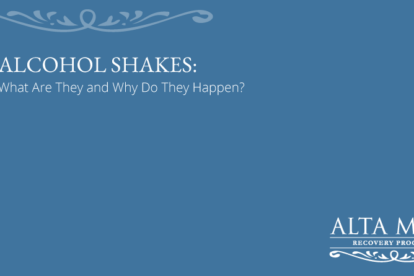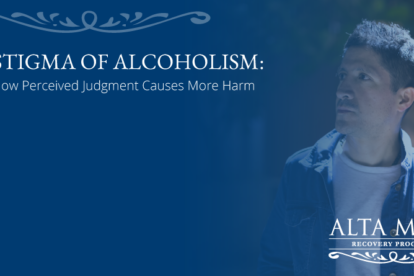
Derealization and Drug Addiction
Derealization is a troubling and distressing experience during which a person feels like the world around them, including people and objects, are separate and unreal. Left untreated this can cause stress, depression, anxiety, and general dysfunction. When derealization occurs with or is triggered by substance use and addiction, the complications may be more serious. The prognosis is positive, though, for anyone struggling with these issues who seeks a professional diagnosis and effective derealization treatment.
What Is Drug Addiction and Derealization?
Addiction, or substance use disorder, is a behavioral condition and brain disorder that results from misuse of substances. It causes an individual to keep using a substance in spite of problems that use causes, such as mental health issues or difficulties in relationships. It also causes someone to struggle to control substance use, to develop tolerance to the substance, and to experience withdrawal when trying to stop using.
Derealization is a mental state in which a person feels detached from things and people around them. The world outside of the individual doesn’t feel real; objects and others seem foggy or like a dream. Sometimes time seems to speed up or slow down. This feeling may or may not be accompanied by depersonalization, a feeling of being detached from one’s own body, as if watching from the outside and observing one’s feelings and movements.
Substance use may trigger and be responsible for episodes of derealization. However, an individual who has a substance use disorder may also have a co-occurring dissociative disorder known as depersonalization/derealization disorder. The condition is rare and often triggered by underlying trauma, and an experienced mental health professional is required to evaluate an individual to determine if the derealization is from the mental illness or if it can be explained by substance use.
Depersonalization Facts and Statistics
Substance use disorders are not uncommon. Depersonalization/derealization disorder is much less common. And it is very common for addiction to co-occur with any mental illness. Almost 50 percent of people struggling with substance use will also be diagnosed for a mental illness.
- Approximately two percent of the U.S. population will be diagnosed with depersonalization/derealization disorder.
- Short-lived, infrequent episodes of derealization are much more common than the disorder, with as many as 50 percent of all people experiencing this type of dissociation at least once.
- Sixteen is the average age of onset of depersonalization/derealization disorder.
- Derealization can be a symptom of another mental illness, like schizophrenia, and it can be triggered by psychoactive substances.
- Derealization can be triggered by cannabis use, but how often this occurs is not well understood.
Symptoms and Diagnosis of Addiction and Derealization
Derealization is a state that can be precipitated by substance use, but in order to be diagnosed with the mental illness depersonalization/derealization disorder a person must meet certain criteria as set by the Diagnostic and Statistical Manual of Mental Disorders, including:
- Persistent and recurrent episodes of feeling detached from the external world, from objects and other people
- Being aware that the experience of feeling detached is not real; retaining a connection to reality
- Episodes of derealization that are not solely caused by a different mental illness and that are not directly triggered by substance use
- Significant distress or dysfunction in one or more areas of life as a result of the derealization feelings
Someone who is experiencing derealization may have episodes that occur out of nowhere or that set in gradually. Likewise, the episodes may end suddenly or fade out more gradually. The duration can range from minutes to hours or even longer. Derealization, whether caused by drug use or as part of depersonalization/derealization disorder, can cause a number of sensations or feelings and symptoms, including:
- Feeling as if objects and other people are not real
- Sensing a fog, wall, or veil separates an individual from the rest of the world
- Feeling as if the outside world is lifeless, colorless, or drab
- Distortions of objects or people, making them seem larger or smaller or blurry around the edges
- Distortions in the sense of time or in sounds
- Distress, depression, or anxiety
- Feeling certain that it is one’s own feelings that are skewed, not objects or other people
Addiction, or substance use disorder, is a very serious mental illness that needs to be diagnosed and treated. It is characterized by out-of-control use of a substance, like an illicit drug or alcohol. To be diagnosed an individual must have multiple symptoms:
- Taking more of a substance than intended and wanting to stop using but failing
- Spending a lot of time on substance use or recovering from use and even giving up other activities in order to use
- Failing at responsibilities and having problems in relationships related to substance use
- Craving a substance
- Continuing to use substances even in dangerous situations or when it harms physical or mental health
- Developing a tolerance to a substance
- Going through withdrawal when not using
There are many other potential signs of addiction and substance use, as well as complications. In some cases these may include experiences of derealization. One of the most serious complications of addiction is overdose. Signs of extreme intoxication, loss of consciousness, slowed breathing, and vomiting should be taken seriously and treated as a medical emergency. Overdoses can be fatal.
We're Here to Help. Call Today!
866-922-1350Co-Occurring Disorders
Addiction commonly co-occurs with mental illness. They have common risk factors, but it is also common that one leads to or contributes to the other. For instance, experiencing derealization is distressing and may lead an individual to use drugs or alcohol as a way to cope. This behavior can lead to an addiction. On the other hand, substance use can trigger an episode of derealization or contribute to the development of the mental illness in someone who was already at risk for it.
Derealization and other dissociative disorders may also co-occur with other mental illnesses. Depression and anxiety, for instance, are not uncommon in those who struggle with dissociation. Because trauma is a common cause of dissociative disorders, other trauma disorders may co-occur with them, including posttraumatic stress disorder or acute stress disorder.
Derealization and Addiction Prognosis
Treatment for depersonalization and addiction is an ongoing endeavor, often continuing in some form for years to help a person avoid relapsing. Residential or outpatient care are both valid options and typically include behavioral therapies, medications when appropriate, medical care, alternative therapies, lifestyle changes, relapse prevention strategies, and family and group support.
Derealization can be treated successfully in most people, but for someone struggling with both this condition and addiction it is essential to treat both. Neglecting one issue can cause the other to return or relapse, even after successful treatment.
Treatment for derealization generally focuses on managing associated symptoms and issues, like substance abuse, anxiety, or depression, and on processing the underlying trauma. The actual episodes of derealization usually resolve on their own but may continue to recur until the real cause is addressed.
The best dual diagnosis drug treatment center will help someone who has experienced trauma involves using one or more types of behavioral and trauma-focused therapies, most effectively in the care of a residential treatment facility. These include cognitive behavioral therapy, dialectical behavior therapy (DBT), eye movement desensitization and reprocessing (EMDR), and family psychoeducation and therapy. These therapies can help an individual process trauma in a more helpful way and learn how to use better coping mechanisms. The prognosis for addiction and derealization is good for anyone willing to commit to professional therapy and other treatments that address both issues.






